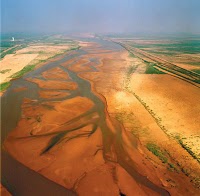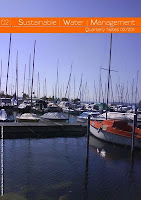China told to reduce food production or face 'dire' water levels

China is running out of water and can no longer afford to irrigate its northern plains, an expert has warned. China needs to reduce food production on its dry northern plains or aquifers will diminish to a "dire" level in 30 years, one the country's leading groundwater experts has warned. Zheng Chunmiao, director of the Water Research Centre at Peking University, said the world's most populous country will have to focus more on demand-side restraint because it is becoming more expensive and difficult to tap finite supplies below the surface. "The government must adopt a new policy to reduce water consumption," Zheng told the Guardian. "The main thing is to reduce demand. We have relied too much on engineering projects, but the government realises this is not a long-term solution." Read more... and participate in the ongoing discussion by joining the LinkedIN-Presence of S ustainable | W ater | M anagement: http://www.linkedin.com/...




